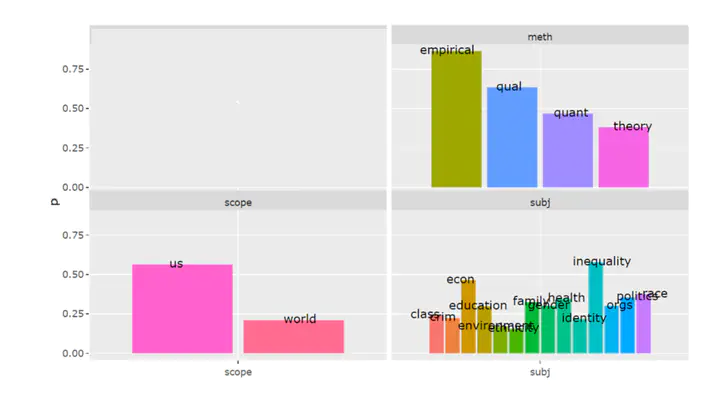
Abstract
The academic discipline of sociology is divided methodologically and theoretically, which has long been a source of consternation as well as celebration. In this paper we describe the state of actually existing sociology as practiced in PhD-granting departments, by analyzing all dissertation abstracts from U.S. sociology departments archived at ProQuest from 2020 through early 2024 (N=1872) using natural language processing methods (Keyword Assisted Topic Models with Latent Dirichelet Allocation). Results show that more dissertations (64%) use qualitative than quantitative (47%) methods. Where geographic scope is identified, most focus on U.S.topics. The most common substantive topics are inequality, broadly defined (58%), followed by economic subjects (46%), race (37%), politics and health (35% each). The most pervasive difference concerns qualitative versus quantitative approaches. For example, qualitative methods are most common in organizations and movements (79%), and least common in life course (43%) and children and youth studies (54%). Quantitative methods are most associated with life course (61%) and ethnicity (59%), and least common in social movements (34%). Finally, using gender probabilities based on given names, we find that average female representation is somewhat higher in qualitative studies (61%) than quantitative (56%) studies, but subject of study matters more, with the average probability of female authorship highest in gender (72%) and family (66%) studies, and lowest in urban studies (52%). Women are more concentrated in qualitative than quantitative studies across almost all subject areas, but the differences are relatively small, so that gender divisions appear to be driven more by subjects of study than by methodological approaches. The data and methods developed in this paper may be extended to additional research questions.